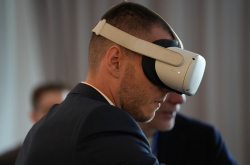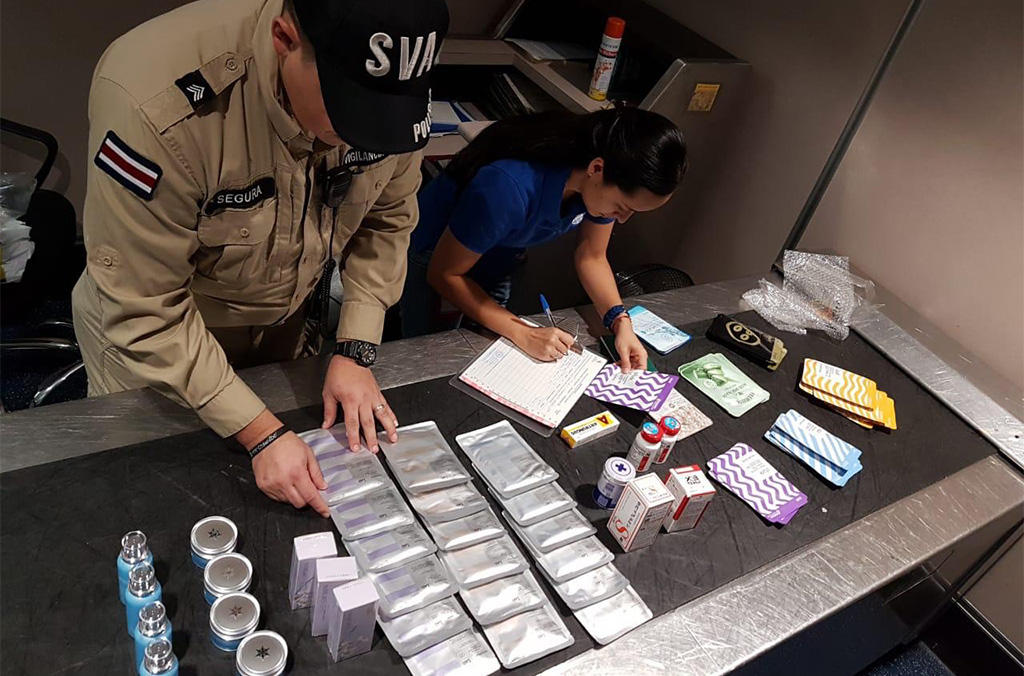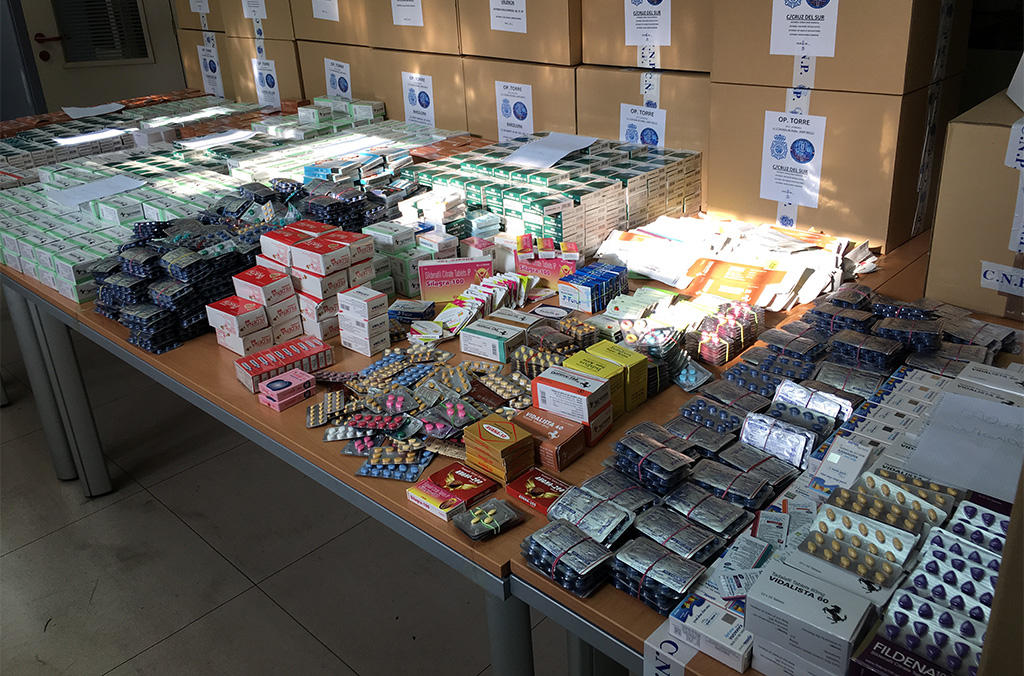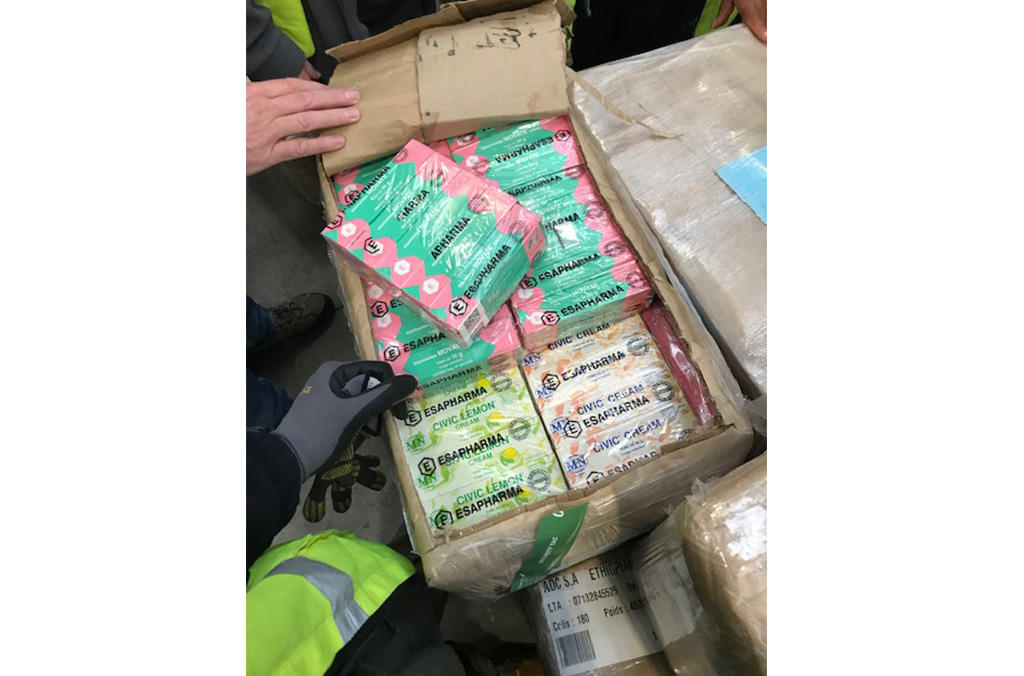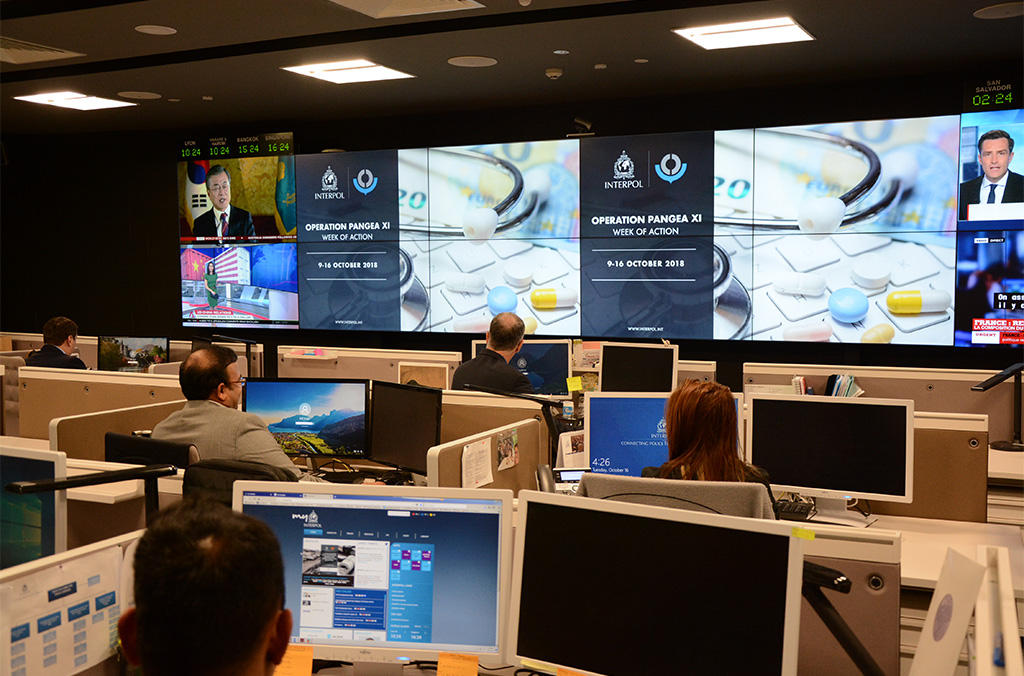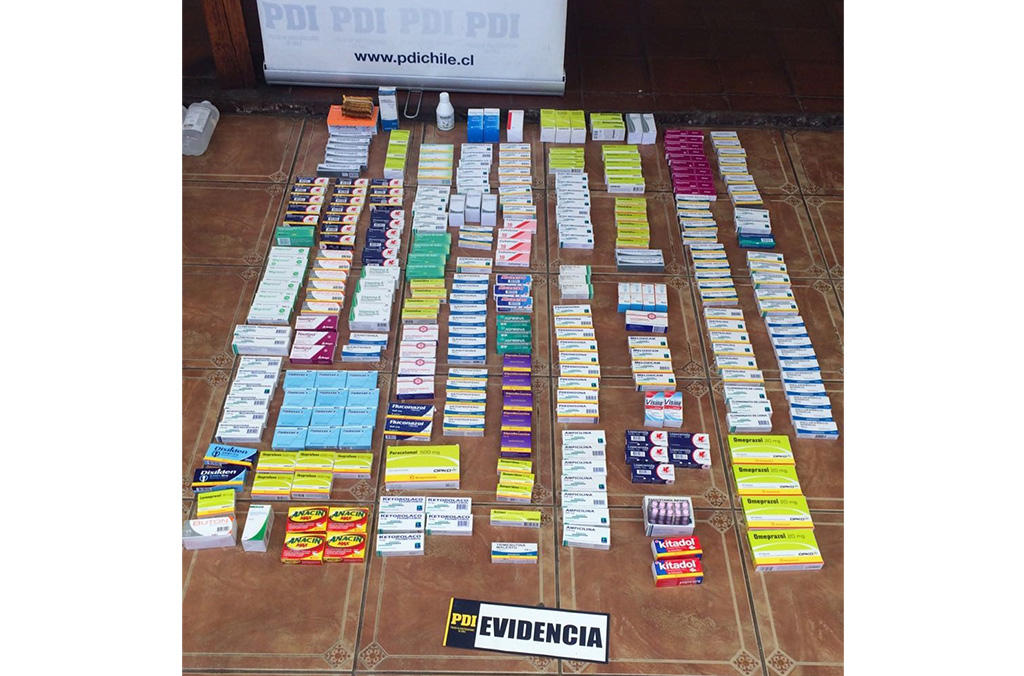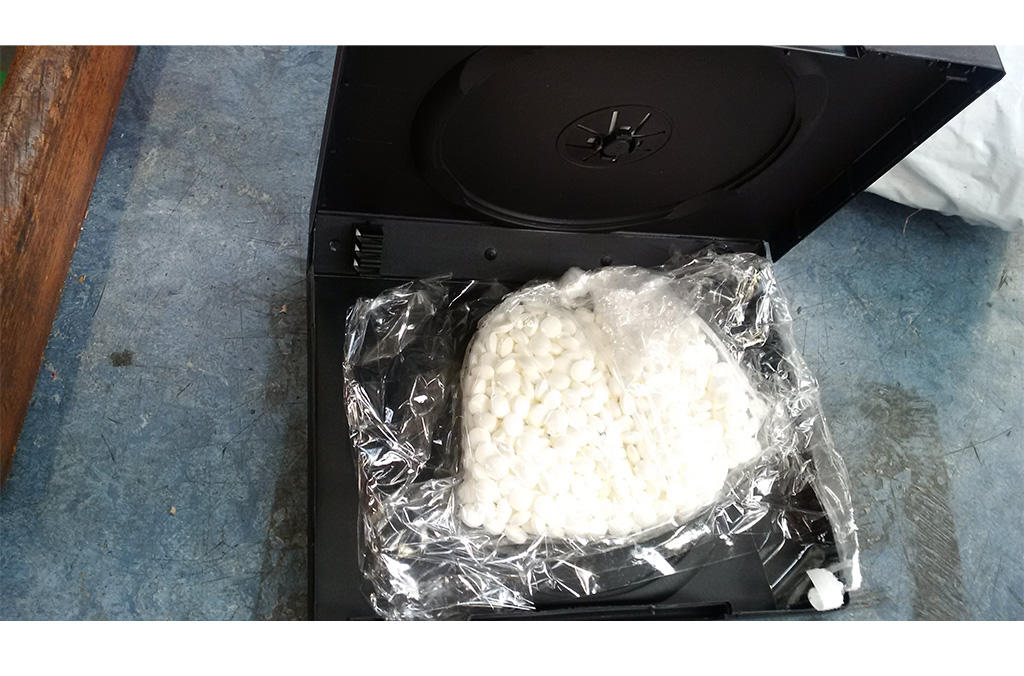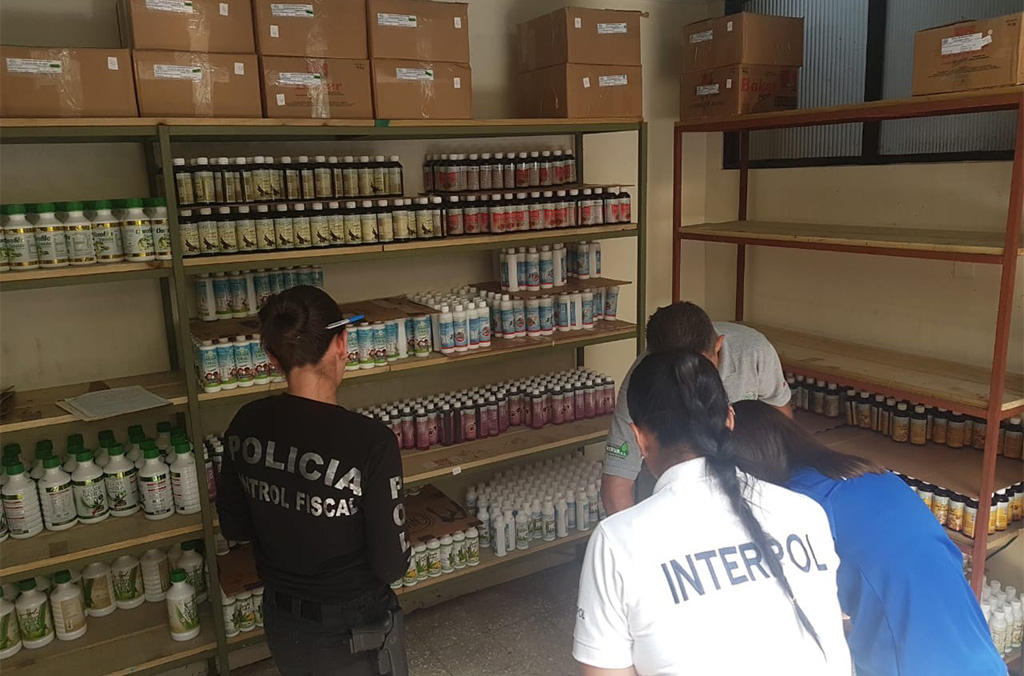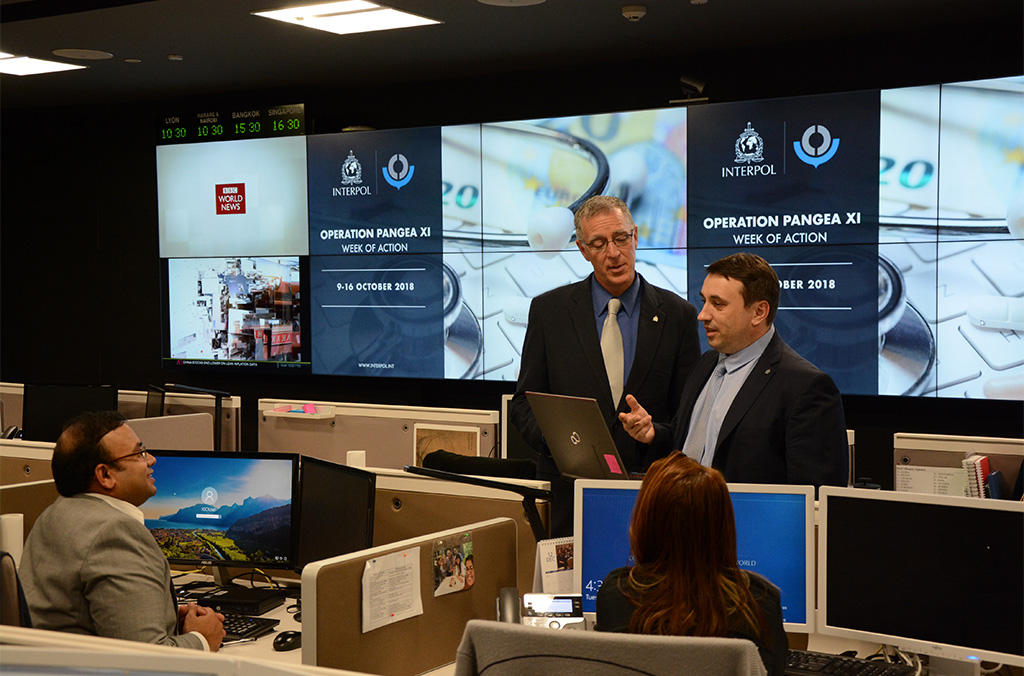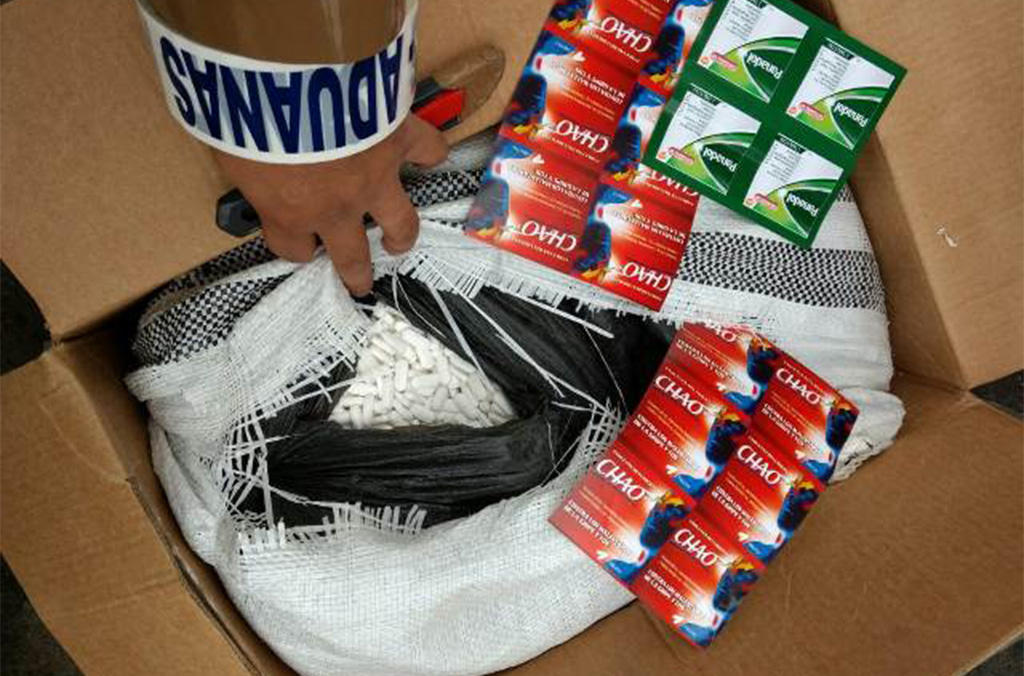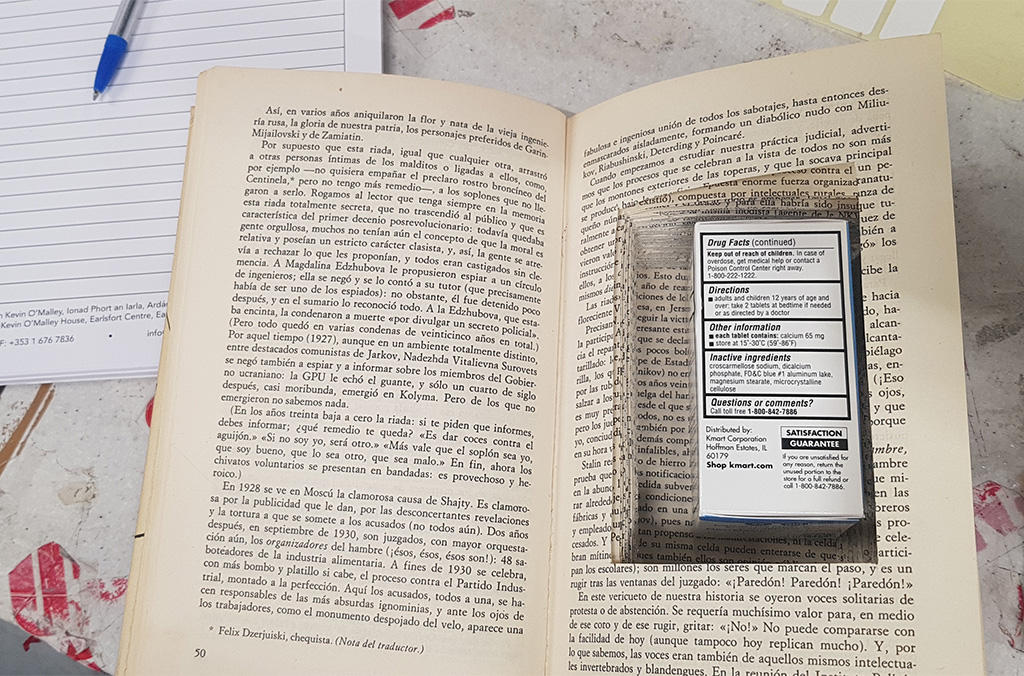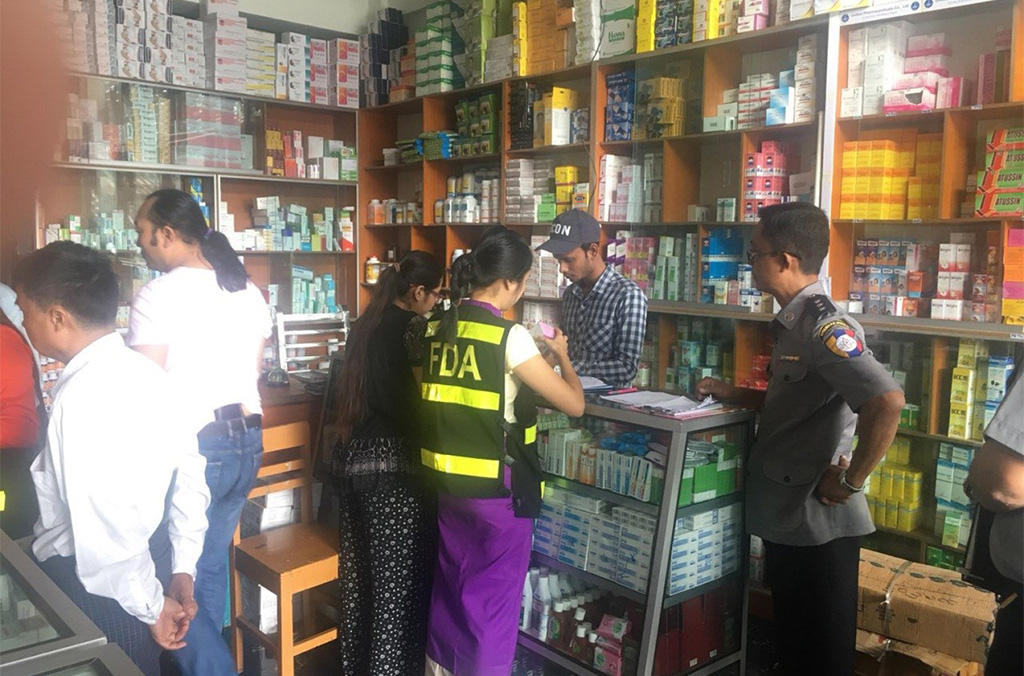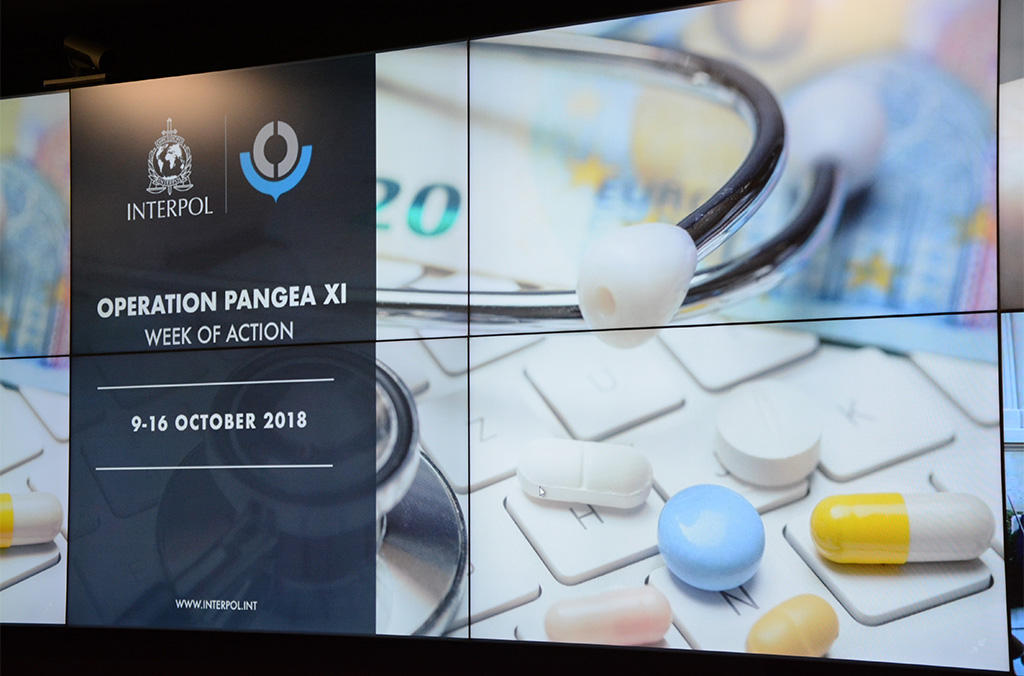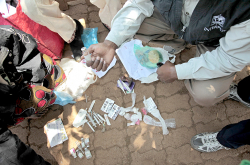SINGAPORE – Fake cancer medication. Counterfeit pain pills. Illicit medical syringes. These are just some of the potentially life-threatening medicines and goods seized during INTERPOL’s Operation Pangea XI.
Police, customs and health regulatory authorities from 116 countries targeted the illicit online sale of medicines and medical products, resulting in 859 arrests worldwide and the seizure of USD 14 million worth of potentially dangerous pharmaceuticals.
Focusing on delivery services manipulated by organized criminal networks, the operation saw 3,671 web links closed down, including websites, social media pages, and online marketplaces.
Almost one million packages were inspected during the week of action (9 – 16 October), with 500 tonnes of illicit pharmaceuticals seized worldwide.
These included anti-inflammatory medication, painkillers, erectile dysfunction pills, hypnotic and sedative agents, anabolic steroids, slimming pills and medicines for treating HIV, Parkinson’s and diabetes. More than 110,000 medical devices including syringes, contact lenses, hearing aids and surgical instruments were also seized.
Criminal networks disrupted
While more packages were seized this year than in previous Pangea operations, the number of medicines seized was lower. INTERPOL Secretary General Jürgen Stock said this is a sign that the operations are achieving their goals.
“The actions of the police, customs, and health regulatory agencies working together have forced the criminals operating illicit online pharmacies to change their modus operandi.
“Criminals are now shipping packages containing smaller numbers of pills and tablets to try and avoid the more stringent checks which have become routine in many countries as a result of the Pangea operations. However, this year’s results again show the successes achieved globally in stopping potentially lethal products from reaching unsuspecting customers,” said Mr Stock.
Authorities in Poland discovered counterfeit contraceptive pills hidden inside DVD packages, while in Ireland, illicit sleeping pills were found concealed inside a hollowed-out book.
Criminals also attempted to evade detection by falsely labelling shipments as genuine items. For example, more than 4 million unmarked ibuprofen pills were seized in Argentina after they were declared as sample items, and the UK recovered some 150,000 powerful sleeping pills in shipments labelled as clothing, bedding and food.
International collaboration
Counterfeit medical devices confiscated during the operation included 737 expired cardiac surgery instruments smuggled into the Former Yugoslav Republic of Macedonia.
“The public must have confidence that the medicines they are taking are both safe and effective. The criminals involved in selling counterfeit medicines must be identified and brought to justice in order to keep our citizens safe. We are proud to be a part of Operation Pangea XI which has made this a reality,” said Gjoko Tanasoski, Director General of the Customs Administration of the Former Yugoslav Republic of Macedonia.
INTERPOL coordinated the operation with support from the World Customs Organization (WCO), the Permanent Forum of International Pharmaceutical Crime (PFIPC), the Heads of Medicines Agencies Working Group of Enforcement Officers (WGEO), Europol, the Pharmaceutical Security Institute (PSI), as well as Twitter, Facebook and payment card companies.
“The Internet has become a major source of unsafe medicines, and international collaboration is critical to protecting the public from these dangers. Customers, sellers, and payment providers are often located in different corners of the world, highlighting the importance of global cooperation to tackle a criminal activity that has no respect for borders,” said Derek Fitzgerald, Manager of the Compliance Branch of Medsafe, the New Zealand Medicines and Medical Devices Safety Authority.
The operation also raised public awareness of the potential dangers associated with buying pharmaceuticals online through videos, brochures, exhibition and talks at hospitals and schools.
Participating countries
Afghanistan; Albania; Angola; Antigua and Barbuda; Argentina; Armenia; Australia; Austria; Azerbaijan; Bangladesh; Bahrain; Belarus; Belgium; Belize; Benin; Bhutan; Bolivia; Bosnia & Herzegovina; Bulgaria; Burundi; Cambodia; Canada; Cameroon; Chile; China; Colombia; Comores; Costa Rica; Croatia; Cuba; Cyprus; Czech Republic; Denmark; Dominican Republic; Ecuador; El Salvador; Egypt; Estonia; Ethiopia; Fiji; Finland; France; Former Yugoslav Republic of Macedonia; Georgia; Germany; Ghana; Greece; Guatemala; Hungary; India; Indonesia; Iran; Ireland; Israel; Italy; Japan; Jordan; Kenya; Korea; Kuwait; Kyrgyzstan; Laos; Latvia; Lebanon; Liechtenstein; Lithuania; Luxembourg; Malaysia; Maldives; Mali; Mexico; Moldova; Mongolia; Montenegro; Morocco; Mozambique; Myanmar; Namibia; Nepal; Netherlands; New Zealand; Nicaragua; Nigeria; Norway; Pakistan; Paraguay; Peru; Philippines; Poland; Portugal; Qatar; Romania; Russia; Saudi Arabia; Senegal; Serbia; Seychelles; Singapore; Slovakia; Slovenia; South Africa; Spain; Sri Lanka; Sweden; Switzerland; Thailand; Timor-Leste; Turkmenistan; Uganda; Ukraine; United Kingdom; United States of America; Uruguay; Uzbekistan; Vietnam; Zambia
See also
Related news
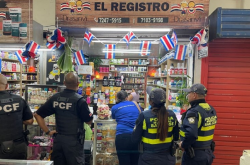
Global illicit medicines targeted by INTERPOL operation
31 October 2023